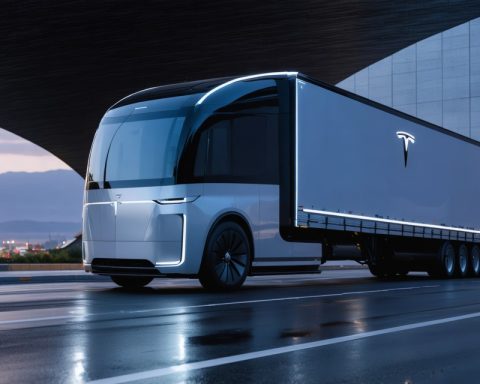Elon Musk’s decision to back Donald Trump in the November elections proved to be a significant turning point for Tesla. The victory brought with it a boost in the electric vehicle leader’s stock, which surged 17% in December, supporting a yearly gain of 62%. While Tesla thrived, other companies in the EV sector struggled.
Tesla’s Winning Streak
Following the election results, Tesla’s prospects appeared brighter than ever. Investors anticipate that Trump’s presidency may streamline regulations, potentially fast-tracking the approval of autonomous vehicles. This aligns with Tesla’s ambitious plans to launch fleets of self-driving Cybercabs across the nation. In pursuit of these ambitions, the company invests heavily in AI infrastructure to refine its self-driving technology using data from existing vehicles.
Besides the potential regulatory ease, Tesla might benefit from the withdrawal of EV tax credits, given its profitability. This shift could further widen the gap between Tesla and its competitors, some of whom might grapple with increased losses.
Challenges for Charging Stations
However, not all players in the EV industry shared Tesla’s success. ChargePoint and EVgo watched their stocks decline by 12.3% and 37.8%, respectively, largely due to market dynamics and specific business moves. EVgo’s stock took a hit following a $1.25 billion loan facility closure from the U.S. Department of Energy, further exacerbated by a secondary stock offering at low prices.
As Tesla’s network remains North America’s dominant charging infrastructure, competitors like EVgo and ChargePoint face uphill battles, compounded by the uncertainty surrounding EV market penetration. In contrast, Tesla’s robust business model continues to drive innovation, promising new product announcements and expansion plans on the horizon.
How Tesla’s Strategic Choices Could Shape the EV Industry Landscape
In a rapidly evolving electric vehicle (EV) market, Tesla continues to lead the charge with a combination of strategic foresight and innovative advancements. As competitors face significant hurdles, Tesla’s strategic alignment with the current political climate and its commitment to technological advancement are setting new benchmarks in the industry.
Industry Trends and Innovations
Tesla’s success amidst the shifting dynamics of the EV sector is not merely a stroke of luck. The company is tapping into emerging trends such as autonomous driving technology and AI advancements, positioning itself at the forefront of innovation. This further cements Tesla’s status as a pioneer in the automotive field, with plans to launch autonomous vehicle services, such as self-driving Cybercabs, which could revolutionize urban transportation.
The company’s strategic investments in AI infrastructure highlight a forward-thinking approach to refining its autonomous vehicle capabilities. Leveraging data from its substantial fleet of vehicles already on the road, Tesla is building a robust system to perfect its self-driving technologies.
Regulatory Climate and Its Impact
Tesla’s traction can also be attributed to the potential changes in regulatory policies under the Trump administration that aim to streamline processes for deploying autonomous vehicles. This could facilitate faster and more efficient approval of innovations, giving Tesla a distinct advantage over other players in the EV market.
Moreover, the potential shift in the EV tax credit landscape may uniquely position Tesla to benefit from further profitability, as they have already achieved levels of success that rely less on government subsidies compared to their rivals. This development might widen the disparity between Tesla and smaller EV companies that still depend heavily on these incentives.
Challenges for Competitors
While Tesla secures a dominant position, competitors such as ChargePoint and EVgo are grappling with their own set of challenges. Faced with significant stock declines, these companies must navigate the complexities of maintaining and expanding their infrastructure amidst economic pressures and market uncertainties.
The reliance on external funding, as seen with EVgo’s substantial loan from the U.S. Department of Energy, highlights vulnerabilities that could impact their long-term success. As the competition for market share intensifies, these companies will need to innovate and adapt to maintain their relevance in the changing landscape.
Sustainability and Future Outlook
Looking ahead, Tesla’s commitment to sustainability and its proactive approach to environmental responsibility are likely to be crucial in maintaining its leadership position. By continuously expanding its charging network infrastructure and investing in green technologies, Tesla aligns itself with global sustainability goals that could favorably impact its market perception and success.
The coming years will be pivotal for Tesla as it continues to spearhead technological advancements and navigate the complexities of the global EV market. Along with its ambitious expansion plans and commitment to innovation, Tesla’s trajectory suggests that it will remain a formidable force in reshaping the transportation industry.
For more insights on Tesla, visit Tesla.











